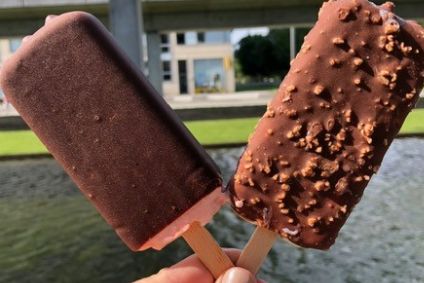
Unilever is reviewing whether to continue using the name ‘eskimo’ on an ice-cream product in Denmark, where the moniker has divided opinion among manufacturers.
The company sells a Kæmpe Eskimo ice cream in Denmark, where, as in some other countries, there has been debate about whether the term ‘eskimo’ should still be used to market products amid the rising scrutiny over product designations for possible stereotyping.

Discover B2B Marketing That Performs
Combine business intelligence and editorial excellence to reach engaged professionals across 36 leading media platforms.
Eskimo is a commonly-used term for an ice cream in Denmark to describe a vanilla ice cream covered in chocolate. In Denmark, there has been some concern about the stereotyping of the native people of Greenland.
Outside Denmark, global ice-cream giant Froneri and snacks behemoth Mondelez International have both said they would drop the use of the word eskimo on certain products. Their moves were among a number made by FMCG companies to change or review brand imagery in the wake of widespread protests against racial prejudice.
One Danish ice-cream manufacturer, Hansens Is, has changed the name of its Eskimo SKU.
Rival supplier Premier Is, which is continuing to use the term, argues that, in the context of ice cream, ‘eskimo’ is “a folklorised category description”.

US Tariffs are shifting - will you react or anticipate?
Don’t let policy changes catch you off guard. Stay proactive with real-time data and expert analysis.
By GlobalDataHowever, the company, owned by Latvia-based ice-cream group Food Union, said it would review whether to change the name of its own Kæmpe Eskimo product.
In a statement provided to just-food, Unilever said its Kæmpe Eskimo would be part of a wider review of the names of products in its portfolio.
“We have a deep and long-standing commitment to diversity in all its forms and, as founding partners of the Unstereotype Alliance, have been working to advance advertising away from unhelpful stereotypes. As part of this we’re committing to reviewing the language and iconography used across more than 400 Unilever brands,” a Unilever spokesperson said.
The Unstereotype Alliance, convened by the UN, was set up in 2017 to try to eliminate gender bias and harmful gender stereotypes from advertising. Mars is also among its members.
Away from food, Unilever has come under recent scrutiny for the product names of some of its skin-care products.





